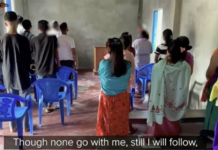
Image Copyright: Danie Nel / Shutterstock.com.
ORLANDO, FL (ANS) Zoomed out? Exasperated by COVID-era isolation? Longing for face-to-face human interaction beyond your home? You’re not alone. Such craving is widespread, and holiday-induced loneliness brings additional challenges. Maybe some expectation management – and realistic solutions – are in order.
Holidays traditionally bring loads of in-person events and interaction. Thanksgiving, Christmas, Hanukkah, Kwanzaa and more gather people to eat, relax, talk, watch sports or movies or concerts, attend faith gatherings, sing, and enjoy company. COVID-era holidays will be different.
Infectious disease expert Dr. Anthony Fauci explained that his three daughters were not coming for Thanksgiving due to COVID concerns. Ditto for National Institutes of Health director Dr. Francis Collins and his extended family.
“Home Alone” for the holidays?

Photo by Andrea Piacquadio from Pexels.
What about you? Has “There’s no place like home for the holidays” morphed into “Home Alone” for the holidays? Have endless virtual office meetings made you a Zoombie? Maybe you’re a stressed parent juggling remote work and homeschooling. Losing sleep because your sales presentation requires schmoozing that a computer screen just can’t provide? Maybe you miss coffee with a trusted friend whose presence affirms your value. Help!
Loneliness affects even experts. With admirable transparency, psychiatrist Ravi Chandra, M.D., noted his own pandemic feelings: “I’ve had difficult moments of loneliness…an intense one on only the second day of quarantine, when it felt like the trapdoor beneath the stage of the world had been dropped out, and there was a bottomless pit of isolation and loss underneath.”
Isolation can make you feel unappreciated, unloved, anxious, angry. Chandra cites a mom who wrote: “My kid had an absolute unholy screaming like forty-minute meltdown about a very small thing and then at the end of it said quietly ‘I miss school and I miss my friends’.” Would that more adults recognized their own emotions’ roots.

Photo by engin akyurt on Unsplash.
So, what to do?
Many suggestions and diversions exist – both helpful and harmful – for handling pandemic isolation and loneliness. Consider a few I’d call helpful:
- Face reality. You may be stuck in COVIDworld for a while, so adjust your expectations. You’ll experience isolation, perhaps danger, death of a loved one, illness, or more. Life may get worse before it gets better. Accepting that may help you discover healthy coping strategies. Olympic runner Louie Zamperini survived 47 days on a raft in the Pacific after his WW2 plane crashed, then endured a hellish Japanese POW camp. On the raft, he had prayed for divine rescue. Faith in God eventually became his mainstay.
- Face your feelings: practice emotional intelligence. Ignoring or stuffing unpleasant feelings can bring physical illness and emotional explosion. Try writing down what you feel and why. Discuss your feelings with a trusted friend. Sometimes just recognizing and talking about feelings can help you process them constructively.
-

Masking up.
Credit: Mikhail Denishchenko / CCO Public Domain.Cultivate kindness. COVID-era Gallup workplace research found that “less than half of employees (45%) strongly agree that their organization cares about their overall wellbeing.” Ouch! Leaders take note. Harvard Business School professor Boris Groysberg writes, “Kindness is contagious as well as calming.” The Mayo Clinic maintains: “The act of helping others actually activates the part of your brain that makes you feel pleasure. …Seems like research supports the Golden Rule: Do unto others as you would have them do unto you. The kinder you act toward others, the better you will feel.”
- Foster your own faith. NIH Director Francis Collins feels the biblical affirmation “God is our refuge and strength” is a “great source of comfort.” Maybe his faith inspires his optimism: “We’re going to get through [this] serious worldwide crisis, and it will have an end.” A personal relationship with God can bring peace of mind, purpose for living, confidence about life beyond death, and the best friend you could ever have.
Worth considering as COVID stress mounts?
Copyright © 2020 Rusty Wright
This article first appeared on WashingtonExaminer.com
# # #
Editors: For access to these images and more, check here, here, here, here, and here.
** You may republish this or any of our ANS stories with attribution to the ASSIST News Service (www.assistnews.net). Please also tell your friends and colleagues that they can get a complimentary subscription to ANS by going to the website and signing up there.






